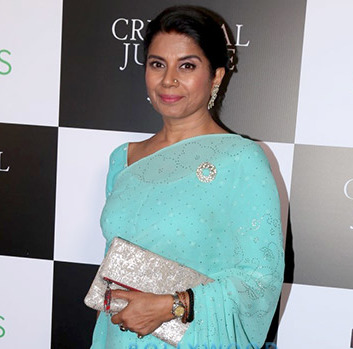Lalleshwari, also commonly known as Lal Ded , was a Kashmiri mystic of the Kashmir Shaivism school of Hindu philosophy. She was the creator of the style of mystic poetry called Vatsun or Vakhs, meaning “speech” (from Sanskrit vāc). Known as Lal Vakhs, her verses are among the early compositions in the Kashmiri language and are a part in the history of modern Kashmiri literature.
Born in 1320, in Pandrethan (present day Srinagar), she died in 1392. She is also known by various other names, including Lal Dyad (Dyad means “Grandmother”), Lalla Aarifa, Lal Diddi, Lalleshwari, Lalla Yogeshwari and Lalishri.
Lalleshwari is believed to have been born to a Brahmin family, and was married at the age of twelve in accordance with the local customs. Following her marriage, she was renamed, as is custom, to Padmavati, but continued to be known as Lalla or Lalleshwari. Her marriage was unhappy, and she left home, to become a disciple of a spiritual leader, Siddha Srikanth or Sed Boyu, who was a Shaivite. As part of her religious education, she travelled alone on foot, surviving on alms, before becoming a teacher and spiritual leader herself.
Records of Lalleshwari’s life were contained in oral tradition, the first written record of Lalleshwari’s life is contained in the Tadhkirat-ul-Arifin, a collection of biographies of saints and religious figures written by Mulla Ali Raina, and followed by an account of her life in Baba Daud Mishkati’s Asrar ul-Akbar in 1654.
In 1736, Khwaja Azam Diddamari’s Tarikh-i-Azami contained a more detailed account of Lalleshwari’s life. She is also noted in a Persian chronicle, the Waqiati-e-Kashmir written in 1746.
Lalleshwari is believed to be a contemporary of Mir Sayyid Ali-Hamdani, an Iranian Sufi scholar and poet, who recorded stories of her in his own verse during his travels to Kashmir.
Lal Ded’s poems represent some of the early works of Kashmiri literature, and were written as Kashmiri began to emerge as a distinct language from Apabhramsa-prakrit, which was spoken in North India. A total of 285 poems, known as vakhs, are attributed to her which are drawn from influences and languages that made contact with the Indian sub-continent in her life, drawing from Sanskritic, Islamic, Sufi, and Sikh cultures.
In 1914, Sir George Grierson, a civil servant and the Superintendent of the Linguistic Survey of India, commissioned a copy of Lal Ded’s Vakhs. A written record of the Vakhs was unavailable at the time, and one was prepared by transcribing an oral narration performed by Dharma-dasa Darwesh, a story-teller residing in Gush, Kashmir. This manuscript was translated in English by Grierson and published as Lalla-Vakyani, or The Wise Sayings of Lal Ded. Grierson consolidated and expanded on the partial translation prepared by the Hungarian-British archaeologist and scholar Sir Marc Aurel Stein.
The leading Kashmiri Sufi figure Sheikh Noor-ud-din Wali (also known as Nooruddin Rishi or Nunda Rishi) was influenced by Lalleshwari. He led to the formation of the Rishi order of saints and later gave rise to many Rishi saints like Resh Mir Sàeb. One Kashmiri folk story recounts that, as a baby, Nunda Rishi refused to be breast-fed by his mother. It was Lalleshwari who breast-fed him.
Lal Ded and her mystic musings continue to have a deep impact on the psyche of Kashmiris, and the National Seminar on her held at New Delhi in 2000 led to the release of the book Remembering Lal Ded in Modern Times. In his book “Triadic Mysticism”, Paul E. Murphy calls her the “chief exponent of devotional or emotion-oriented Triadism”. It points to the non-sectarian nature of her spiritual life and her song-poems.
Lal Ded is arguably Kashmir’s best known spiritual and literary figure. Within Kashmir, she has been venerated both by Hindus and Muslims for nearly seven centuries. For most of that period, she has successfully eluded the proprietorial claims of religious monopolists. Lal Ded was constructed differently by each community, she was simultaneously Lallesvari or Lalla Yogini to the Hindus and Lal’arifa to the Muslims; today unfortunately, these descriptions are increasingly being promoted at the expense of one another.
Beyond several new translations of her Vakhs, there are other contemporary performing arts that are based on Lalleshwari’s life and poetry.
👉 Click here to read the latest Gujarat news on TheLiveAhmedabad.com



